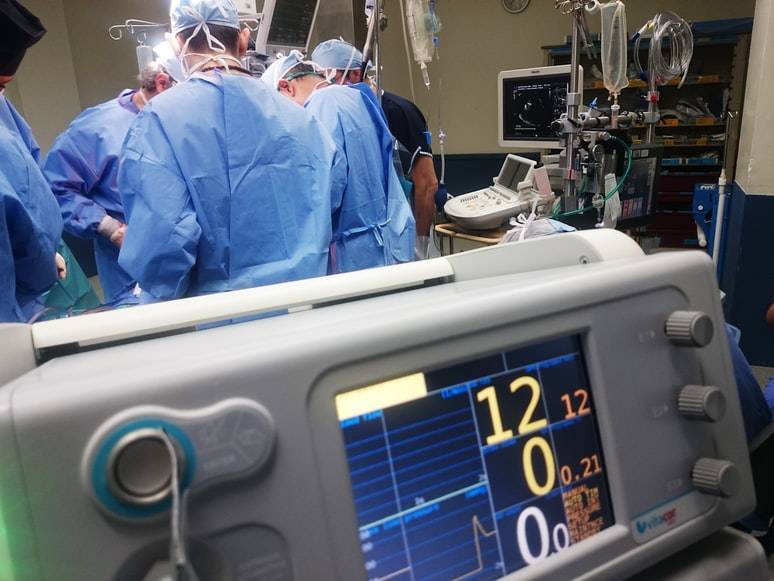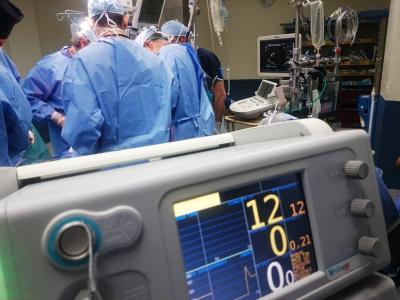Doctors from the Dubai Health Authority managed to save the life of a 36-year-old Gulf patient who suffered a rupture of the aorta through a complex surgery that lasted eight continuous hours at Dubai Hospital under general anesthesia, where the aorta was replaced and blood flow was restored to the other arteries supplying the brain, intestines, kidneys, and heart.
The patient had arrived at the Rashid Hospital's Emergency and Trauma Center after being urgently transferred from the Authority's field hospital during the New Year's celebrations, as he was suffering from severe chest pain, loss of consciousness, shortness of breath, and difficulty speaking. The emergency doctors began performing the necessary tests for accurate diagnosis and urgently referred him to the cardiothoracic surgery department at Dubai Hospital to avoid any potential complications.
Dr. Ayman Majdoub, a specialist in emergency medicine at Rashid Hospital, stated that the patient's condition required urgent medical intervention to save his life. The medical team conducted the necessary tests, including a CT scan that confirmed the aortic rupture and the immediate need for surgical intervention to prevent negative complications. He noted that a percentage of such cases suffer fatalities before reaching the hospital, and a significant number of patients die within 24 hours if diagnosis and intervention are not timely.
He highlighted the coordination between the emergency doctors at Rashid Hospital and various medical departments at the Authority's hospitals, including Dubai Hospital, where the case was referred to the cardiothoracic surgery team for urgent surgical intervention.
Dr. Obaid Mohammed Al-Jassim, consultant and head of the cardiothoracic surgery department at Dubai Hospital, explained that the medical team began conducting the necessary tests and preparing the patient for a delicate and rare operation in cardiothoracic surgery, especially since the patient was suffering from a complete rupture of the aorta, affecting the arteries supplying the brain, intestines, and kidneys. During the surgery, part of the ruptured aorta was repaired and replaced with a prosthetic artery using a specific surgical technique, the aortic valve was replaced, and the sensitive arteries supplying the heart were grafted.
He also noted that during the operation, precautions were taken to protect brain health by cooling the blood supply to the brain to lower body temperature, ensuring that the brain was fed with oxygen-rich blood through a special connection, while continuously maintaining perfusion to the liver, kidneys, and lungs, emphasizing the large volume of blood the patient needed during such operations.
The patient stayed in the intensive care unit for 48 hours before being weaned off the ventilator and moved to the recovery room. He eventually left the hospital in good health without any complications but requires continuous medical follow-up every six months for CT scans of the grafted arteries and ultrasound checks on heart functions, stressing the importance of maintaining blood pressure and blood sugar levels.
Dr. Al-Jassim confirmed the seriousness and precision of such operations, which require extensive expertise and knowledge, mentioning many similar cases treated at Dubai Hospital referred from various public and private hospitals in Dubai and the northern Emirates, achieving success rates exceeding 80%, comparable to advanced global centers in this field. He emphasized the importance of urgent intervention in such surgeries, as the likelihood of death increases by 5% for every hour that passes without medical intervention.




